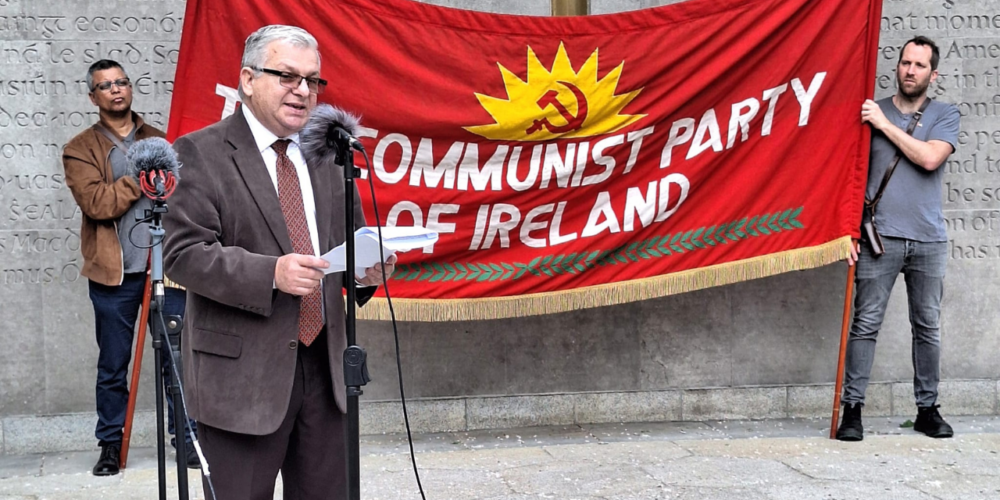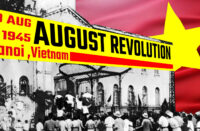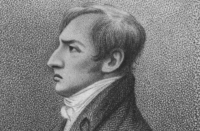The following is a speech given by Cuban Ambassador of Ireland, Bernardo Guanche Henandez, at this year’s James Connolly Commemoration at Arbour Hill in Dublin:
“Comrades all,
I am very honored this afternoon to pay tribute to a historical figure of the stature of James Connolly, a prominent Marxist and fighter, whose example and thought remains valid in an increasingly unequal and militaristic world.
Connolly was one of the few great leftist leaders in Europe who opposed the First World War, as did Lenin, whose Decree on Peace on November 8, 1917 proposed an immediate withdrawal of Russia from the First World War. This great wave of class struggles in Ireland was cut short by the war, but Connolly maintained a firm internationalist position like Lenin, Rosa Luxemburg and other internationalists.
The heroic fight of Connolly and his comrades was a real knock. Although they were massacred, their example inspired the great revolutionary movements of the working class in later years. James Connolly is part of the best revolutionary legacy of Ireland and the world.
What was happening in Cuba in 1916 when Connolly was murdered? Since the beginning of the 19th century, while still under Spanish rule, Cuba attracted the greed of the United States. In 1805 Thomas Jefferson, the young nation’s third President, stressed the strategic importance of the island and expressed the desire for an “easy conquest.”
In 1823 John Quincy Adams, then Secretary of State, developed the famous “low-hanging fruit” theory that recalled the existence of the laws “of political gravitation” and the unnatural nature of the ties between Cuba and Spain. The island “could only gravitate around the North American Union.” That same year Jefferson noted that “Cuba would be the most interesting addition to our system of states.”
During the 19th century, Washington proposed to Spain no less than six times to acquire the island and made an offer of 100 million dollars.
The United States decided to impose its tutelage on Cuba through the Platt amendment, forcibly integrated into the new Constitution, which uniquely limited the sovereignty of the island and authorized, among others, military intervention whenever the White House considered that its interests were in danger. This was the case in 1906, 1912 and 1916, which reminded Cubans each time of the imperfect nature of their independence.
In 1953, the attack on the Moncada barracks marked the beginning of the insurrectionary period. On January 1, 1959, Batista’s military regime was overthrown, giving birth to a new era in Cuban history.
The advent of the Cuban Revolution, which the Eisenhower Administration opposed from the beginning, as well as the process of socioeconomic transformation, generated strong tensions with the United States, which imposed economic sanctions and developed a secret program aimed at overthrowing the Government of Havana starting in 1960.
Over time, US diplomatic rhetoric evolved to justify hostility toward Cuba. The Republican Eisenhower Administration evoked the process of nationalization and expropriation to explain the imposition of the first sanctions against Cuba. Democratic President John F. Kennedy relied on the alliance with the Soviet Union to explain the reinforcement of coercive measures in February 1962. Then his successors respectively alluded to Havana’s support for revolutionary and independence movements in the world, particularly in Latin America and Africa, to justify maintaining a hostile policy towards the island.
Since the end of the Cold War and the fall of the Soviet Union in 1991, every president of the United States, from George H. Bush to Joe Biden, through Bill Clinton, George W. Bush, Barack Obama and Donald Trump, have raised the issue of democracy and human rights to justify the persistence of sanctions against Cuba.
Fidel educated Cubans under the principle of extending a generous hand to people in need and placed solidarity and integration at the center of the country’s foreign policy. Fidel made internationalist solidarity a pillar of the Revolution, providing support to movements that fought against imperial oppression in Latin America, Africa and wherever it was needed.
Algeria was the first to benefit from Cuban aid in December 1961 while waging its war against French colonialism. Likewise, Cuba played a key role in the fight against Apartheid.
Cuba has carried out nearly 600,000 missions in 158 countries with all types of medical consultations such as births, surgical operations and vaccinations.
I would like to take this opportunity to denounce Israel’s cruel genocide against Palestine.
We always express its solidarity with the Palestinian cause and currently hundreds of students from that Arab country are studying in Cuba.
My country is going through a difficult economic situation due to the impact of the United States economic blockade, brutally reinforced in the context of COVID-19. Very aggressive measures taken by the government of former President Donald Trump and still in force, such as the illegitimate designation of Cuba as a State Sponsor of Terrorism, cause enormous costs and serious humanitarian consequences for the Cuban people.
Cuba faces serious commercial and financial difficulties in all the markets motivated by the North American measures. The combined effect of the above is expressed in serious supply problems in the services on which the population depends.
In the midst of this difficult situation, Cuba suffers a communicational war, which seeks to discourage, further irritate the people and turn them against the Revolution. Millions of dollars and the use of highly sophisticated information and disinformation technologies are used for this.
It seeks to depress the standard of living of citizens, generate discontent and try to mobilize segments of the population to commit violent acts and rally against the government. Falsehoods, fabricated legends and their propagation in the mass media are used to internationally generate the image of a country that is socially unstable and in political crisis.
The Cuban people and the international community are aware of the dishonest campaign that the government of the United States has launched since 2019 to discredit Cuba’s international medical cooperation; exert pressure on the governments that have asked for it and deprive peoples of these health services.
In their campaigns against Cuba, any pretext is valid. Even religious freedom in Cuba, a right endorsed by the country’s Constitution, are distorted and questioned.
Since 2019, the blockade has been tightened to the extreme. It would be no exaggeration to affirm that the consequences of this siege could be described as devastating. This means that solidarity with Cuba must continue to strengthen until one day the criminal blockade is definitively lifted. Cuba has the right to live without a blockade.
Cuba reaffirms that it is a stable, safe, united country, capable of facing great challenges with creativity, effort and that its population is not in danger.
I would like to express my sincere gratitude for this invitation and reiterate our appreciation for your unwavering support.
Long live the Communist Party of Ireland!”






